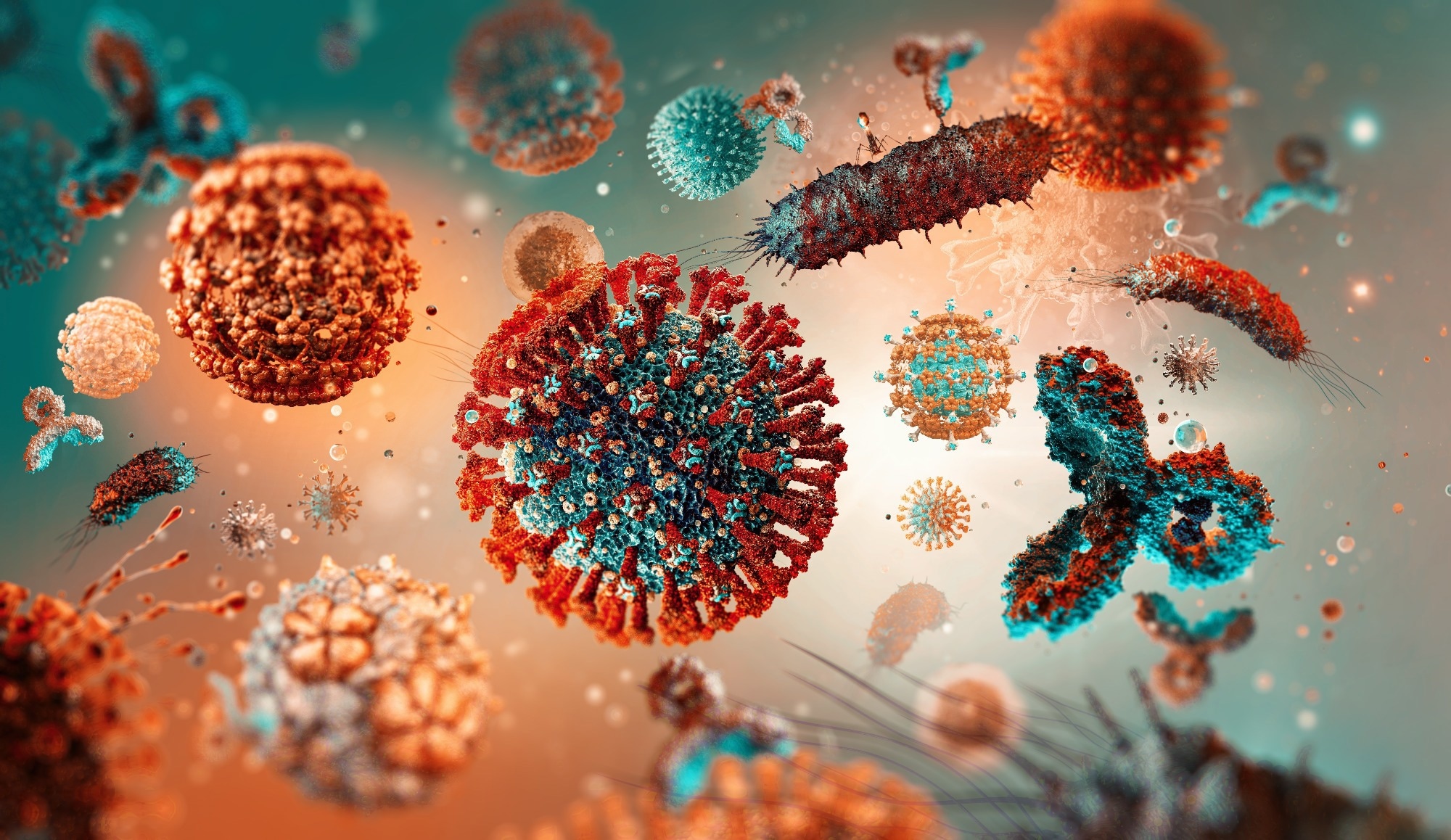In a study recently published in the International Journal of Infectious Diseases, researchers evaluated the effectiveness of coronavirus disease 2019 (COVID-19) vaccines in people living with human immunodeficiency virus (HIV).
Study: Immunogenicity and efficacy of COVID-19 vaccines in people living with HIV: a systematic review and meta-analysis. Photo Credit: Corona Borealis Studio/Shutterstock
The morbidity, mortality, complications and significant economic disruption caused by COVID-19 have accelerated the discovery of highly effective vaccines to unprecedented levels. However, there is a lack of information on the efficacy and safety of vaccines in groups of people living with HIV (PLWH) because no data on people living with HIV have been published in vaccination studies. These individuals are of particular interest as the original disease or concomitant treatments may have suppressed or overactivated their immune system. In addition, since it has been found that viral shedding and infection is more severe and persistent in people living with HIV, data on this population are urgently needed.
About the study
In the present study, researchers compared the immunogenicity and efficacy of COVID-19 vaccines in people living with HIV versus healthy individuals.
The team electronically searched the Cochrane Library, PubMed/Medline and EMBASE for published articles. First, the research papers were screened by title and abstract, followed by the full text of the article. Then two researchers examined each title, each abstract, and the entire text separately.
The team performed a meta-analysis of prospective studies that met the following requirements: patients receiving any brand and type of COVID-19 vaccine; persons living with HIV/acquired immunodeficiency syndrome (AIDS); Articles that included and documented data on a control group that included people not infected with HIV; and studies reporting at least one case of either seroconversion or serological titers following COVID-19 vaccination.
The team made a post hoc change to include articles reporting data related to prospective observations; qualitative analysis or experimental studies in human subjects, all vaccinated against COVID-19 with any brand and type of vaccine; Studies involving people living with HIV/AIDS and studies that published seroconversion rates in people living with HIV with or without a control group.
The study setting, primary and secondary endpoints, sample size, inclusion and exclusion criteria, drop-out and non-response rates, and study design were all included in the study characteristics data. Age, gender, and medical history, including history of immunosuppressive medication, were all included in the participant information. Eight vaccine types and brands, a dosing schedule, the number of participants who received each type and brand of vaccine, and the mean or mean interval between doses were among the information associated with the intervention. Assay type, antibody tested, measurement method, sample collection intervals, and number of measurements were among the outcome-related variables. Seroconversion after the first and second doses of the COVID-19 vaccine was the primary outcome of interest.
Results
The total number of studies included in the meta-analysis of seroconversion rates was 22. Ten of the 22 studies used messenger ribonucleic acid (mRNA) vaccines, including BNT162b2 and mRNA-1273; six used inactivated vaccines including CoronaVac and BBIBP-CorV; five used viral vector vaccines including AZD1222 and Ad26.CoV2.S; and one used recombinant spike protein nanoparticle vaccines co-formulated with a saponin-based adjuvant, Matrix-M. Among the viral vector vaccines, four studies used AZD1222, including three in which it served as the sole vaccine while Ad26.COV2.S was used in only one.
Compared to healthy controls, seroconversion after the first dose of vaccination was documented in seven studies in people living with HIV. The seroconversion rate between healthy controls and people living with HIV was similar. After receiving a second dose of the vaccine, seroconversion rates were lower in people living with HIV than in healthy controls in 20 studies, including 2,068 people living with people living with HIV and 4,454 healthy controls. After receiving a second dose of the vaccine, the subjects’ antibody titers did not appear to be significantly changed or decreased.
After the first and second doses, subgroup analyzes were performed for studies that included only mRNA and non-mRNA vaccines. The effects of mRNA vaccines and non-mRNA vaccines on seroconversion were not appreciably different after the initial dose. After the second dose, there were no discernible differences in the effects of the mRNA and non-mRNA vaccines on seroconversion.
Overall, the study results showed that COVID-19 vaccines had positive immunogenicity and efficacy in people living with HIV. Although seroconversion was slightly lower after the second vaccination in people living with HIV compared to healthy individuals, a second dose is consistently associated with improved seroconversion. Additional measures such as B. a follow-up dose of the mRNA-COVID-19 vaccine, could improve the seroprotection of these individuals.
Magazine reference:
- Juntao Yin, Yangyang Chen, Yang Li, Chaoyang Wang, Xingwang Zhang, Immunogenicity and efficacy of COVID-19 vaccines in people living with HIV: a systematic review and meta-analysis, International Journal of Infectious Diseases, 2022, ISSN 1201-9712, DOI: https://doi.org/10.1016/j.ijid.2022.10.005, https://www.sciencedirect.com/science/article/pii/S1201971222005422
#COVID19 #vaccines #demonstrate #favorable #immunogenicity #efficacy #people #living #HIV


Leave a Comment